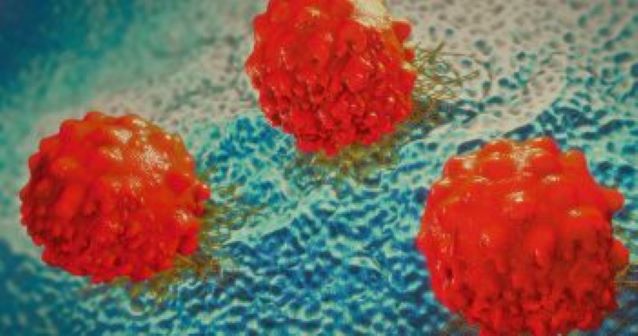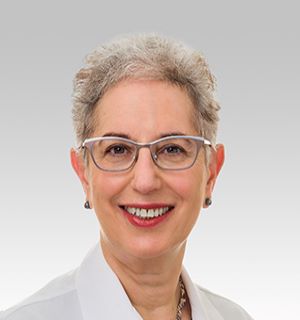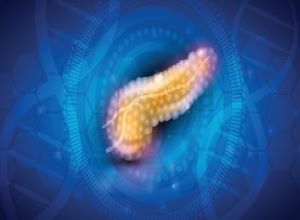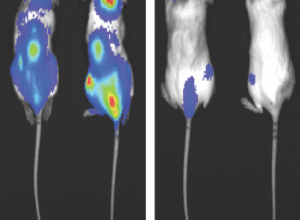|
November 2020 IMMUNOTHERAPY EFFECTIVE IN HODGKIN LYMPHOMAFeaturing: Jane Winter, MD, ’82 GME
A brief course of immunotherapy resulted in complete and near complete remission in nearly two-thirds of previously untreated patients with classical Hodgkin lymphoma, according to a Northwestern Medicine clinical trial published in the journal Blood. More than 35 percent of patients experienced complete disappearance of lymphoma with pembrolizumab, an immune checkpoint inhibitor. Using this drug as a first-line treatment could reduce the number of patients who later require more intensive chemotherapy or consolidation with radiotherapy, according to Jane Winter, MD, ’82 GME, professor of Medicine in the Division of Hematology and Oncology and senior author of the study. “Reducing the percentage of patients who require escalation to more aggressive treatment strategies is really important as the more intensive therapies are toxic and increase the risk of cardiovascular disease and secondary malignancies,” said Winter, who is also a member of the Robert H. Lurie Comprehensive Cancer Center of Northwestern University. Hodgkin lymphoma (HL) is a cancer that originates from lymphocytes, a type of white blood cell. The current standard of care is a four drug regimen called ABVD. While ABVD is the most effective treatment available right now, some patients still see disease progression. In addition, the treatment has the potential to cause lung complications, particularly in older patients, Winter said. In the past few years, however, scientists and clinicians have been investigating new treatments in an attempt to move away from chemotherapy — and HL is a particularly good candidate for immunotherapy. “Checkpoint inhibitors have been used extensively in solid tumors with excellent results in many diseases,” Winter said. “In Hodgkin lymphoma, however, there is a genetic basis for its unique sensitivity to checkpoint inhibition.” In the current study, investigators treated 30 patients with pembrolizumab. Patients received one dose of pembrolizumab per week for three weeks, and then were imaged using a PET scan that measures the extent of the cancer. The scans showed 37 percent of patients had complete responses, while another 25 percent of patients with quantifiable disease had near-complete responses — more than 90 percent reduction in their disease. Complete and near-complete responses were also seen in patients with very large masses. All patients then went on to conventional chemotherapy, though Bleomycin, a key component of the standard ABVD regimen, was omitted because of concerns about lung toxicity. After two cycles of AVD chemotherapy, another PET scan showed that 100 percent of patients had achieved complete remission, according to the study. Ordinarily, about 20 percent of patients will have positive PET scans after two cycles of chemotherapy, an indication to escalate chemotherapy and in many cases add radiotherapy, Winter said. No patient in this study needed to escalate therapy or receive radiotherapy. At the end of treatment, 100 percent of patients were in complete remission. Further, no patient has relapsed or required a change in therapy on follow-up. These results are promising, Winter noted, and a larger study may cement pembrolizumab as an effective frontline treatment option for HL. This study was supported by Merck & Co., which manufactures pembrolizumab, and the Lurie Cancer Center Support Grant P30 CA060553 from the National Cancer Institute. This article was originally published in the Feinberg School of Medicine News Center on November 4, 2020. |
Jane Winter, MD, ’82 GME, professor of Medicine in the Division of Hematology and Oncology and member of the Robert H. Lurie Comprehensive Cancer Center of Northwestern University, was senior author of the study published in Blood.
Refer a PatientNorthwestern Medicine welcomes the opportunity to partner with you in caring for your patients.
|
You May Also Like
|
February 2021 |
September 2020 |






